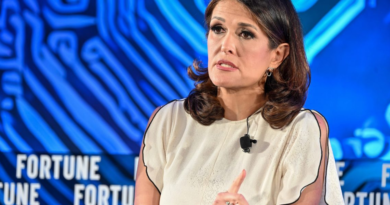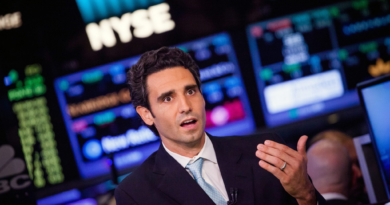Lowe’s followed Tractor Supply, Harley Davidson and John Deere in backing off DEI initiatives
Home improvement chain Lowe’s is scaling back its diversity, equity and inclusion policies, joining the ranks of several other companies that altered their programs since the U.S. Supreme Court outlawed affirmative action in college admissions or after facing a conservative backlash online.
In an internal memo shared by Lowe’s with The Associated Press, its executive leadership said the retailer began “reviewing” its programs following the court’s July 2023 ruling and the company recently decided to combine its resource groups, which were for “individual groups representing diverse sections of our associate population,” into one umbrella organization.
The retailer also will no longer participate in an annual survey by the Human Rights Campaign that measures workplace inclusion for LGBTQ+ employees, and will also stop sponsoring and participating in events, such as festivals and parades, that are outside of its business areas.
The changes were made to ensure Lowe’s policies are “lawful” and aligned with its commitment to “include everyone,” the memo states.
“We may make additional changes over time,” the company’s leadership team said in the memo. “What will not change, though, is our commitment to our people.”
Robby Starbuck, a conservative political commentator who has gone after companies like Tractor Supply and John Deere, took credit for the changes Monday in a post on X, saying he had approached a Lowe’s executive online last week and detailed his plans to “expose” the company over its hiring policies and other topics, such as LGBTQ+ employee resource groups and funding for Pride events.
However, Lowe’s spokesperson Steve Salazar pushed back on that claim in an email Tuesday, noting that Starbuck’s outreach came after the company “already announced changes that had long been in process” internally. The company memo did not specify when exactly these changes were implemented but noted that they were discussed at an August 21 meeting.
Over the last week, Lowe’s has knocked down a different claim spreading on social media, in which a digitally-altered image quoted Lowe’s CEO Marvin Ellison as saying that conservatives who didn’t like the company’s values should instead shop at rival Home Depot.
“Lowe’s CEO did not make this comment,” the company wrote on X in response to several users who shared the image. “Everyone is welcome at Lowe’s.”
For his part, Ellison has diversified the company’s ranks, adding more women and ethnically diverse leaders since taking the helm in 2018. Ellison, who is Black and grew up in segregated rural Tennessee, has also been outspoken about racism since the police killing of George Floyd, which sparked major protests for racial justice in 2020.
Criticism of such DEI policies has extended well beyond Lowe’s to companies across all industries. They include boycott calls on social media as well as legal attacks following the Supreme Court’s affirmative action ruling, which many anti-DEI activists want to use to set a similar precedent in the working world.
Starbuck, who has a sizable following on X, has used the platform as a mega phone to target DEI policies at Tractor Supply, farm equipment maker John Deere, motorcycle manufacturer Harley-Davidson and whiskey maker Jack Daniels. During an interview with The AP last month, the 35-year-old Cuban American said he has a list of companies he is thinking of posting content about, but was starting with ones that have traditionally conservative customer bases.
Following an online pressure campaign earlier this summer, Tractor Supply and John Deere ended some diversity measures. Last week, Harley-Davidson backtracked on its DEI policies, though the company noted in its announcement that it has not “operated a DEI function since April 2024.”
Meanwhile, a spokesperson for Jack Daniels’ parent company Brown-Forman said last week that it had “adjusted” its diversity and inclusion strategy to “ensure it continues to drive our business results while appropriately recognizing the current environment in which we find ourselves.” Starbuck suggested on X that the company had reacted preemptively after his team looked at employee profiles on LinkedIn.
Though the changes are welcomed by conservative activists, DEI advocates say that, by conceding to Starbuck and other right-wing figures, corporations are essentially giving in to hate.
“Racial justice and LGBTQ inclusion are being, for lack of a better word, sort of scapegoated by a small, organized effort that’s really seeking to dictate how companies conduct their business,” said Jen Stark, co-director of the Center for Business and Social Justice at BSR, a consulting network of more than 300 companies.
Stark said it’s a challenging environment for companies today, but stressed that a majority are keeping diversity and inclusion programs in place because they make good business sense. However, following last year’s Supreme Court decision, she noted that businesses need to ensure their DEI programs are “on firm ground” — and avoid overcorrection when and if backlash arrives, which she noted can cause more harm.
“This isn’t just a step backward for workplaces,” she said. “It’s really a retreat from how we normalize practices that remove barriers and impediments for everyone.”
On Tuesday, the Human Rights Campaign, which Lowe’s is no longer partnering with under its new policy, blasted such retreats from DEI and pointed to potential impacts on companies’ bottom line by turning off LGBTQ+ and other consumers.
Orlando Gonzales, HRC’s senior vice president of programs, research and training, called the changes “shortsighted decisions contrary to safe and inclusive workplaces” that would create a “snowball effect of negative long-term consequences.” Gonzales also took particular aim at Starbuck — arguing companies “should not cower to a random guy with zero business experience” and that the activist was removed from Tennessee Republican party because he is “so extreme.”
Starbuck, who did not immediately respond to a request for comment Tuesday, said last month that his list included companies perceived as mainstream or middle of the road politically, including Microsoft. For a company such as coffee chain Starbucks, on the other hand, it would be “hard to force boycott pressure on them,” he said.
Stark noted the outcome of the U.S. election “will also turn the thermostat, up or down” on the DEI conversation. A second term for former President Donald Trump would likely increase pressure against DEI policies — with many of Trump’s supporters already signaling ways they’d like to see such practices dismantled — whereas his challenger Kamala Harris could have the opposite effect.
Some companies are bracing for the prospects of potential changes in terms of their federal contracts, for example, which have historically been a powerful way to promote equity in workplaces. And others may be looking to change language or find new workarounds to existing programs.
“We could see potentially a resurgence of DEI related efforts or retrenchment,” she said. “I think a through line will be that companies will continue again to do this work in practice or in name — (but) the degree to which they show up publicly will be dependent on the landscape.”


